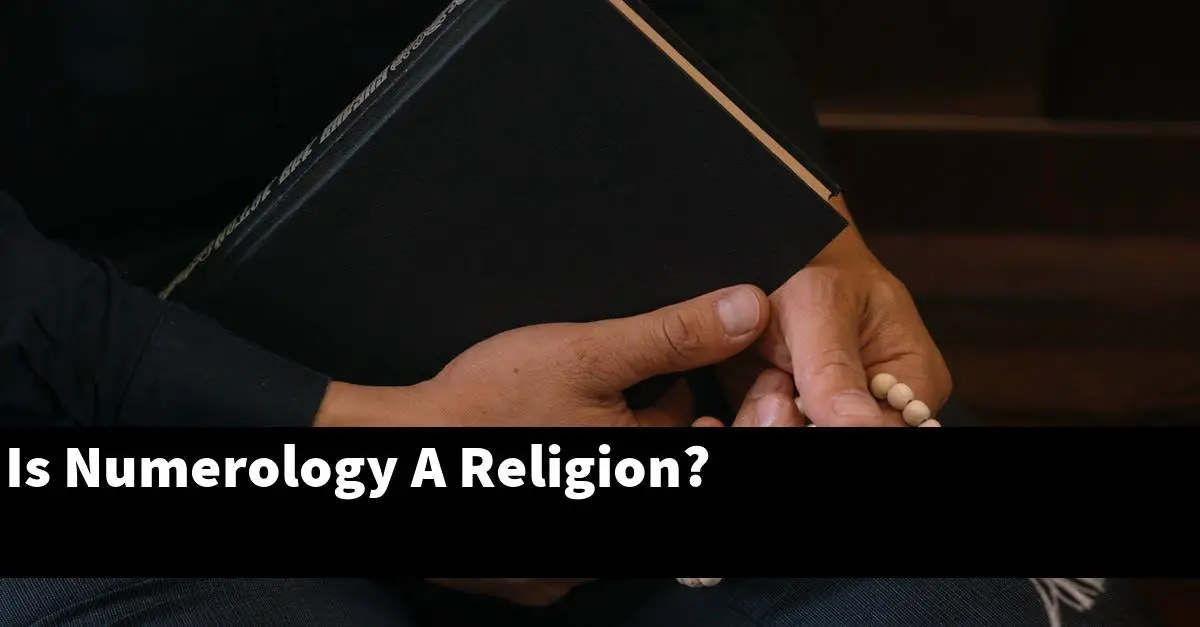Numerology is a belief in the divine, mystical relationship between numbers and physical objects or living things.
What is numerology based on?
Numerology is the study of the numeric values assigned to letters and symbols. These values are used in astrology, tarot, and other esoteric practices to gain knowledge about a person’s character and destiny.
Who invented numerology?
Various sources attribute the invention of numerology to different people and eras. Some suggest that numerology originated in ancient Greece, while others credit India with its creation.
Regardless of who is credited with its invention, numerology is an often-used system for understanding and predicting personality traits and future events.
What is numerology?
Numerology is the study of the numeric value of words and phrases. It is based on the idea that numbers have a specific energy and effect on the human psyche.
People who are numerologists often look at the numbers that are associated with people’s names and try to understand the meaning behind them. They may also use numerology to predict future events.
Is numerology biblical?
Numerology is not biblical. There are no references to numerology in the Bible.
Is numerology allowed in Islam?
Numerology is not considered part of Islam, although some Muslims may believe in it. There is no specific prohibition against it in the Quran or the Sunnah, but there is a strong disapproval of astrology, which is seen as an attempt to read God’s will through the analysis of celestial objects.
Who believed in numerology?
Different people may have different beliefs in numerology. Some people may believe that numerology can be used to understand a person’s personality or potential, while others may consider it to be a pseudoscience.
Ultimately, it is up to the individual to decide whether or not they believe in numerology.
Why numerology is wrong?
Numerology is an ancient system of divination that uses the digits 1-9 to predict future events. Proponents of numerology believe that the numbers represent different aspects of a person’s personality and can be used to divine a person’s future.
However, there is no scientific evidence to support the claims made by numerologists.
There are several reasons why numerology is wrong. First, the digits 1-9 are not evenly distributed throughout the whole number spectrum.
Almost half of all numbers are between 2 and 5, while only a tiny fraction (1 percent) of all numbers are 6 or more. This means that numerology is biased in favor of certain numbers and ignores the majority of numbers.
Second, numerology is based on the assumption that the numbers represent actual physical characteristics of a person. However, the digits 1-9 are not evenly distributed throughout the human body.
For example, almost half of all people have a digit in the number 2, while only a tiny fraction of people have a digit in the number 9. This means that numerology is biased in favor of certain physical characteristics and ignores the majority of physical characteristics.
Finally, numerology is not based on any scientific principles. Instead, it is based on superstitions and ancient myths.
Therefore, numerology is not reliable and should not be used to predict future events.
Does the Bible support numerology?
There is no consensus among biblical scholars on the precise meaning of numerology, but most biblical scholars believe that it was used at least informally in the ancient world to interpret certain words and phrases.
Some people believe that numerology can be used to predict future events, while others claim that numerology can provide spiritual insight into one’s life.
It is generally accepted that the biblical writers did not use numerology as a means of predicting the future or understanding one’s spiritual life. Rather, they may have used it in a less formal way to communicate certain ideas and concepts.
Conclusion
Numerology is not a religion, per se. It is a system of beliefs that holds that numbers have inherent meaning and can be used to gain insight into a person’s life, relationships, and circumstances.
While there is no concrete evidence to support the claims made by numerologists, many people find comfort and guidance in the practice.


